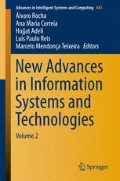Abstract
The growing popularity of smartphones with their multiple functionalities have made these devices a valuable asset to teaching and learning. The study presents the assessment of free-download electronic dictionaries for iOS, Android and Windows operating systems. Three monolingual (Portuguese) and three bilingual dictionaries (Portuguese-English) were evaluated by a class of Engineering students at a federal institution. The main objective of the investigation was to find out how participants evaluated the constituent elements of the apps and their usability features. The study also verified how students perceived the apps as valid reference instruments to be used in both formal and informal learning situations, and what school level is suit to introduce them as pedagogical tools. Data were collected using a questionnaire with mixed-type questions, including the students’ habits of consulting dictionaries. Results may serve as parameters for eventual selection of this educational resource for both teachers and learners.
Access this chapter
Tax calculation will be finalised at checkout
Purchases are for personal use only
Preview
Unable to display preview. Download preview PDF.
References
e-Marketer,http://www.emarketer.com/Article/Mobile-Connections-Brazil-Tipping-Toward- Faster-Networks/1010186
App Annie, http://blog.appannie.com/app-annie-index-market-q1-2015/
Jenkins, H.: Convergence Culture: Where Old and New Media Collide. New York University Press, New York (2009)
UNESCO. Policy guidelines for mobile learning. UNESCO, Paris, France (2013),. Johnson, L., Adams Becker, S., Estrada, V., Freeman, A. NMC Horizon Report: 2014 Higher Education. Austin, Texas: The New Media Consortium (2014)
Johnson, L., Adams Becker, S., Estrada, V., Freeman, A. NMC Horizon Report: 2014 Higher Education Edition. Austin, Texas: The New Media Consortium (2014)
Koole, M. L. A Model for Framing Mobile Learning. In: Ally, M. (ed.), Mobile Learning: Transforming the Delivery of Education and Training, AU Press, Edmonton, Alberta. pp. 25–49. (2009)
Churchill, D., Churchill, N. Educational Affordances of PDAs: A study of a Teacher’s Exploration of This Technology. Computer and Education, 50 (4), 1439–1450. (2008)
Liaw, S. S., Chen, G. D., Huang, H. M. Users’ Attitudes Toward Web-Based Collaborative Learning Systems for Knowledge Management. Computers and Education, 50, pp. 950 –961 (2008).
Nesi, H. Dictionaries on Computer: How Different Markets Have Created Different Products. In: Symposium on Language Learning and Computers. Chemnitz University of Technology (1998)
Johnson, L., Adams Becker, S., Estrada, V., Freeman, A. 2014 NMC Technology Outlook for Brazilian Universities. A Horizon Project Regional Report. Austin, Texas: The New Media Consortium (2014)
Koole, M. L.; Ally, M. Framework for the Rational Analysis of Mobile Education (FRAME) Model: revising the ABCs of educational practices. In: The Networking, International Conference on Systems and International Conference on Mobile Communications and Learning Technologies. IEEE. pp. 216–216. (2006)
Palfrey, J; Gasser, U. Born Digital: Understanding the First Generation of Digital Natives. Basic Books, New York (2008)
Stockwell, G. Investigating Learner Preparedness for and Usage Patterns of Mobile Learning ReCALL 20 (3), pp. 253–270, (2008)
Dias, J. Cell Phones in the Classroom: Boon or Bane? C@lling Japan, 10(2), pp. 16-22, (2002)
Engel, G.; Green, T. Cell Phones in the Classroom: Are we Dialing up Disaster? Tech Trends 55 (2), pp. 39–45, (2011)
Biderman, M.T.C. Dicionários do Português: da Tradição à Contemporaneidade. Alfa Revista de Linguística, 47(1), (2003), http://seer.fclar.unesp.br/alfa/article/view/4232
Rangel, E. de O.; Bagno, M. Dicionários em Sala de Aula. Brasília, DF: Ministério da Educação, Secretaria de Educação Básica. (2006)
Lan, L. The growing prosperity of on-line dictionaries. English Today 83(3), pp. 16–21, (2005).
Lew, R. Dictionary Users in the Digital Revolution. International Journal of Lexicography, 27 (4), pp. 341–369, (2014)
Zarei, A,A,. Gujjaar, A.A. The Contribution of Electronic and Paper Dictionaries to Iranian EFL Learners’ Vocabulary Learning. International J. Soc. Sci. & Education. 2(4), pp. 628- 635, (2012)
Leffa, V. J. O Uso de Dicionários On-line na Compreensão de Textos em Língua Estrangeira VI Congresso Brasileiro de Linguística Aplicada. Belo Horizonte: UFMG. (2001)
Schuler, C. Pockets of Potential: Using Mobile Technologies to Promote Children’s Learning, New York: The Joan Ganz Cooney Center at Sesame Workshop. (2009). http://www.joanganzcooneycenter.org/wp-content/uploaads/ 2010/03/pockets_of_potential_1_.pdf/
Belay, R. O Uso do Dicionário por Alunos de Escola Pública no Brasil Comparado ao Uso de Dicionário por Estudantes na Espanha. In: Revista FACEVV, Vila Velha, ES, n.5, pp. 107–117, (2010)
Dargel, A. P. T. P. A Utilização do Dicionário no Ensino do Léxico. In: Ave Palavra (UNEMAT), v. 6, p. 58–68, (2005)
Author information
Authors and Affiliations
Corresponding author
Editor information
Editors and Affiliations
Rights and permissions
Copyright information
© 2016 Springer International Publishing Switzerland
About this paper
Cite this paper
Bastos, H.P.P., Machado, G.P.F. (2016). Dictionaries on Smartphones: Learners’ Assessment of Features and Potential of Dictionary Apps as Pedagogical Tools. In: Rocha, Á., Correia, A., Adeli, H., Reis, L., Mendonça Teixeira, M. (eds) New Advances in Information Systems and Technologies. Advances in Intelligent Systems and Computing, vol 445. Springer, Cham. https://doi.org/10.1007/978-3-319-31307-8_15
Download citation
DOI: https://doi.org/10.1007/978-3-319-31307-8_15
Published:
Publisher Name: Springer, Cham
Print ISBN: 978-3-319-31306-1
Online ISBN: 978-3-319-31307-8
eBook Packages: EngineeringEngineering (R0)

